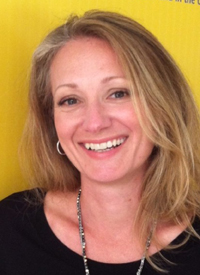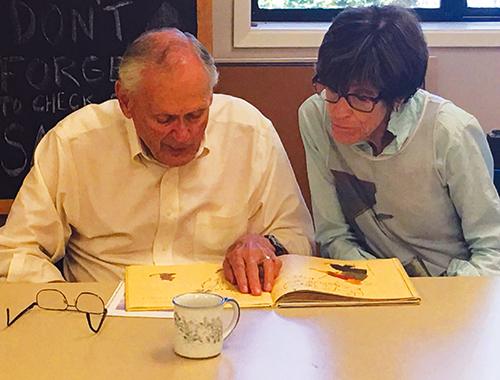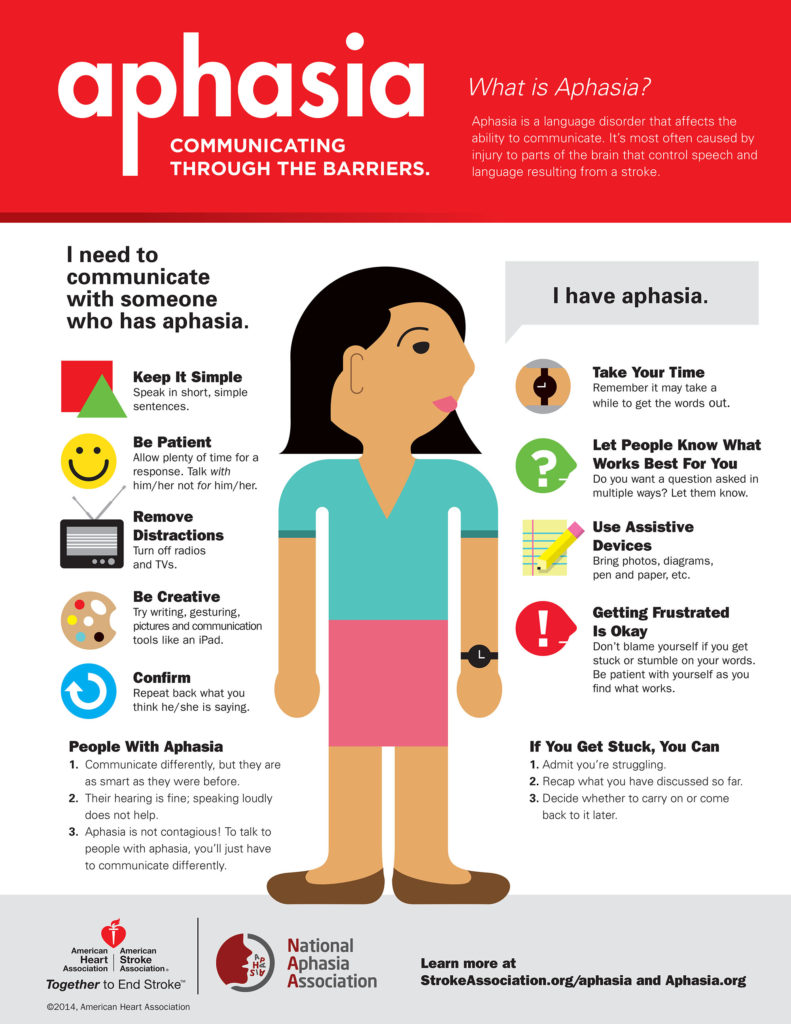Occupational Therapy (OT) is an effective rehabilitation therapy for survivors of brain injury, concussion or stroke that is offered at Schurig Center in group classes and in individual sessions. We realize that many survivors and their families are unaware of what OT is and the benefits it offers. Let’s learn more about OT, who can benefit from it, and the services offered at Schurig Center.
 Maggie Smida, OTR-L is Schurig Center’s Occupational Therapist. Maggie received her Master’s Degree in Occupational Therapy at San Jose State University and is a member of the American Occupational Therapy Association. She came to us from UCSF Medical Center where she gained valuable experience in acute care setting. Maggie has created tailored OT protocols specific to brain injury rehabilitation for survivors who are no longer receiving insurance covered OT and who benefit from continued rehabilitation.
Maggie Smida, OTR-L is Schurig Center’s Occupational Therapist. Maggie received her Master’s Degree in Occupational Therapy at San Jose State University and is a member of the American Occupational Therapy Association. She came to us from UCSF Medical Center where she gained valuable experience in acute care setting. Maggie has created tailored OT protocols specific to brain injury rehabilitation for survivors who are no longer receiving insurance covered OT and who benefit from continued rehabilitation.
What is Occupational Therapy?
Occupational Therapy (OT) is one of three main rehabilitation therapies: Physical, Speech, and Occupational. The therapy name can be misleading since the purpose is not to help the client get back to work (though some OT’s can do that!). OT’s purpose is to maximize independent living and facilitate a productive fulfilling lifestyle. It’s called “occupational” therapy because the word “occupation” refers to any task a person performs which “occupies” their time. These can be fun hobbies or necessary activities for daily living.
The scope of practice is quite broad! OT’s are trained to address basic skills, such as brushing teeth or getting dressed (i.e. after stroke, living with neurodegenerative disease, etc.) all the way to managing a checkbook and supporting socializing with others. However, most OT’s end up specializing in a specific practice area.
Maggie’s specialization here at Schurig Center is considered non-traditional OT. She focuses on training people living with brain injury to use new “lifestyle systems” that will help them live fuller, more satisfying lives. These systems are devised to support management of daily routine and schedule, help organize personal business and household management tasks, sort out priorities, and facilitate participation in meaningful activities. Typically, these are areas not addressed during traditional rehabilitation stays.
Who could benefit from Occupational Therapy?
A joke in OT training school is that “everyone can benefit from a little OT.” However, it is mostly directed toward anyone who is having difficulty participating in activities they need or want to do because of injury, disease, or disability. An OT’s focus is always to support greater independence. Sometimes the way OT facilitates the accomplishment of a client’s goal for independence is through rehabilitative steps. Other times, it is by teaching adaptive strategies, work arounds, or a different way to complete an activity.
What do you work on in an Occupational Therapy session?
That very much depends on a client’s goal. Typically, OT sessions start with the OT learning about what activities a client wants to get better at doing. Then they determine his or her barriers to participating in or completing the activity. Finally, a plan is created that includes education and training for the client. Each session we work towards the goal.

What is CogSmart?
CogSmart is a 10-week compensatory cognitive training class for people with post concussive symptoms and/or mild TBI. The curriculum was developed by a team in neuro-rehabilitation at the San Diego VA. The course teaches lifestyle management, trains students in coping strategies, and introduces external aids and mental strategies all designed to support cognition function. Here at Schurig Center, Maggie adapted the curriculum to benefit the specific needs of our clients living with symptoms of a concussion.
As the facilitator, what is Maggie’s favorite thing about CogSMART?
Maggie shared that she really enjoys teaching in a small group setting, and she loves the practicality of the course content. Students regularly share what strategies have worked or not worked for them, their own ideas, and complete in class exercises in pairs. It is great to see how the support of those who understand each other can make a difference in the human condition. The peer support seems to have such a positive impact on motivation and facing the challenge of a brain injury with resilience.
Do you think you would benefit from Occupational Therapy?
Schurig Center offers one-on-one Occupational Therapy sessions as well as CogSMART 1 and CogSMART 2 classes based on Dr. Elizabeth Twamley’s protocol from UC San Diego.
For more information and to enroll, contact Schurig Center’s Resource Specialist at resources@schurigcenter.org or (415) 461-6771 ext 100.




